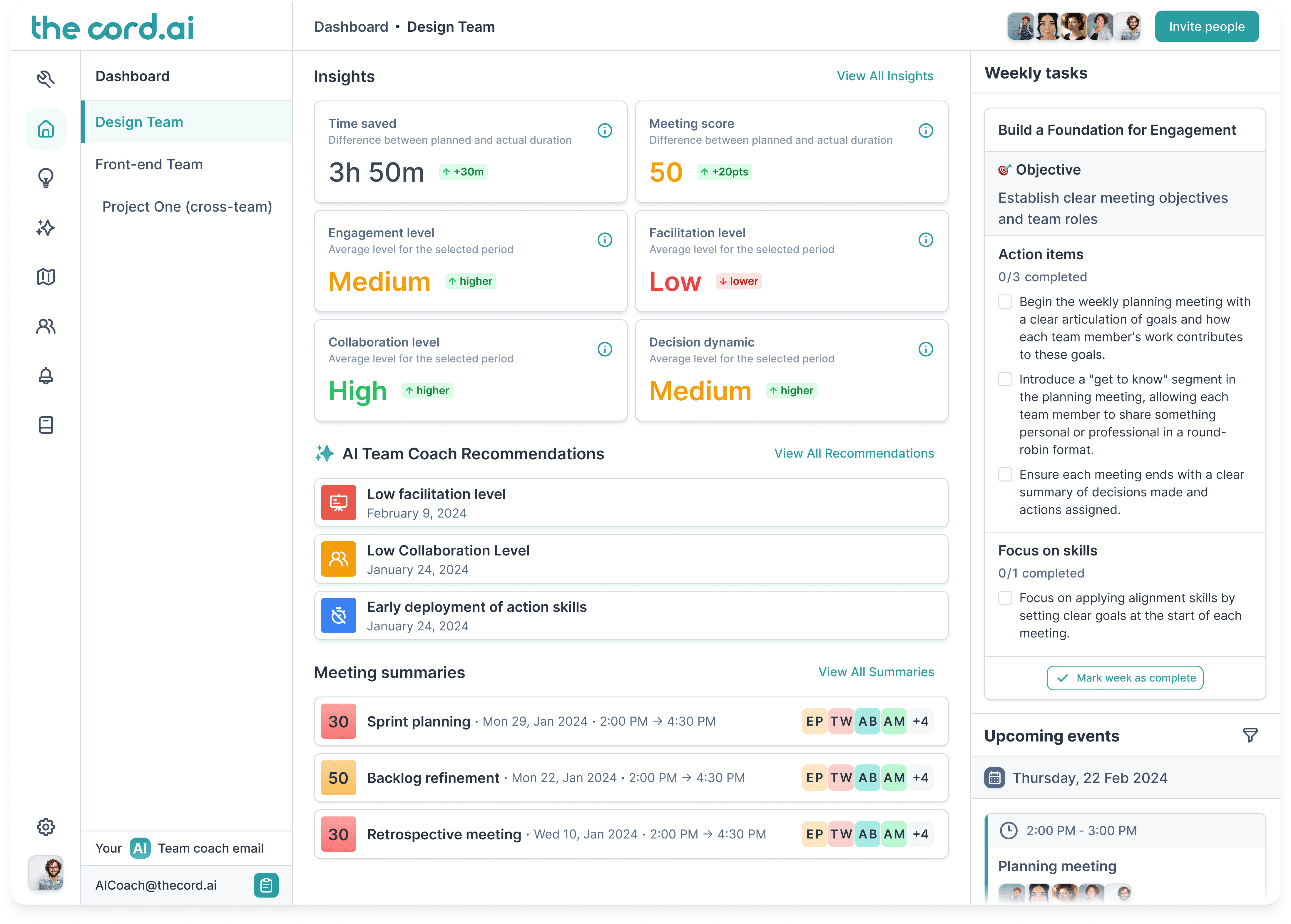Meetings: an essential but often painful element of work life, are now more than ever a real drain on productivity and satisfaction. Over the past five decades, meetings have progressively consumed more of executives' time, from less than 10 hours in the 1960s to nearly 23 hours per week today, excluding impromptu gatherings. This increase in meetings has far-reaching implications, affecting everything from team collaboration to individual well-being.
Despite the universal dread they seem to inspire, many executives still staunchly defend meetings as a "necessary evil," essential for fostering an inclusive, learning environment and preventing autocratic decision-making. They are seen as vital for collaboration, creativity, and innovation, building relationships, and ensuring effective information exchange. However, the defense of meetings often overlooks their significant cost to the organisation’s productivity and employees' personal satisfaction.
Research shows that the overwhelming majority of senior managers consider meetings a barrier to completing their work, with 65% reporting that meetings prevent them from finishing their tasks, and over 70% viewing them as unproductive and inefficient. The issue is exacerbated by meetings cutting into time for deep work, critical for creativity and efficiency, leading many employees to compensate by extending their work into early mornings, late evenings, or weekends.
The real cost of poorly run meetings can be seen in the stiff penalties companies pay in terms of lower market share, reduced innovation, and unstable employment. These meetings contribute to a workplace environment where happiness and productivity suffer, as evidenced by a study showing a direct correlation between employees’ meeting satisfaction and their overall job satisfaction.
The good news is that systemic change is possible, and organisations can dramatically improve how meetings are conducted. Our research and consulting suggest a five-step process to transform meeting cultures:
Data collection: gather detailed feedback from all team members to understand the breadth of the issue.
Collective analysis: discuss the findings openly to develop a shared understanding of the problems and potential solutions.
Set clear objectives: establish relevant goals that resonate personally with team members to foster collective buy-in and motivation.
Monitor progress: set milestones and assess progress regularly to maintain momentum and adjust strategies as needed.
Regular reviews: hold consistent meetings to evaluate the effectiveness of changes and adapt approaches.
By reevaluating and restructuring the approach to meetings, organisations can reclaim valuable time and restore energy to their teams. The key is to balance the needs for group collaboration and individual deep work, ensuring that meetings are both necessary and effectively managed to support rather than hinder organisational goals. Transforming the meeting culture within a company can be challenging, but it is essential for maintaining competitiveness and fostering a healthy work environment in today's fast-paced business world.











